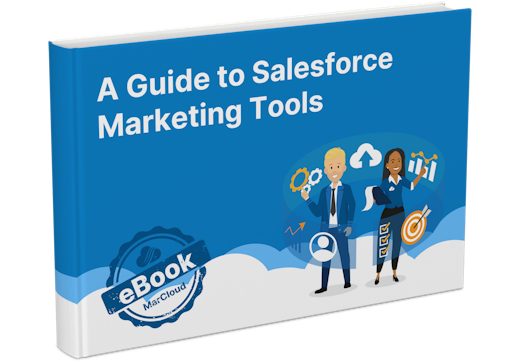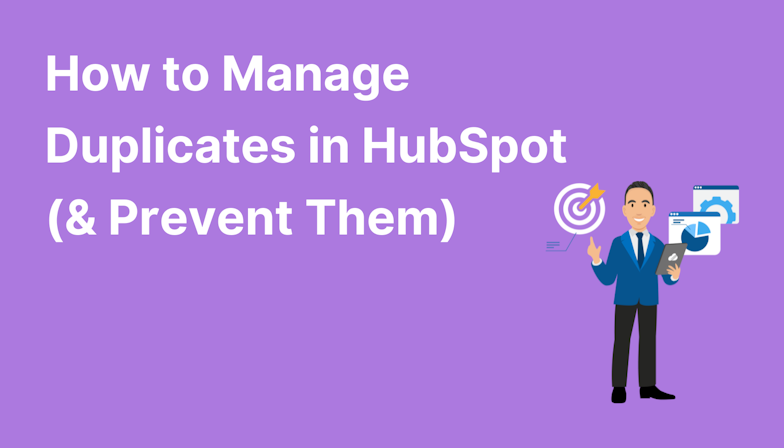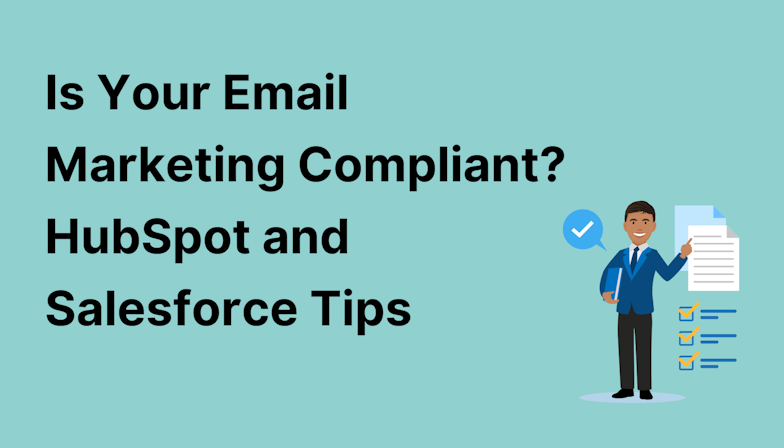With Pardot recently being renamed to Marketing Cloud Account Engagement’, much of the community has been quick to point out that account engagement’ is a pretty well-used marketing term that could easily confuse users and their wider teams.
For example, in a meeting about marketing performance, team members could share their latest social media account engagement statistics but then switch to talking about marketing automation and email performance via Account Engagement. To the majority of listeners, it could be difficult to differentiate between a marketing phrase and the Salesforce platform.
Not only this, there are many other marketing terms that sound very similar to account engagement’, such as:
- Account-based marketing (ABM)
- Account-based sales (ABS)
- Account-based engagement (ABE)
Confused what the difference is between each of these? You’re not alone! Many marketers are scrambling to understand the nuances.
Allow me to explain all.
The definition of account engagement’
For those marketers who manage social media profiles, you’ll often say or hear account engagement’ when discussing how well your audience interacts with your account via likes, shares, comments, reactions, and so on.
Example: “Our Facebook account engagement has increased 10% within the last quarter.”
This is just one usage of the term.
In the B2B marketing world though, an account’ usually means a business or organisation that you are currently working with, or would like to work with. Within an account, there may be multiple contacts that you speak with, such as the Marketing Manager and the Business Development Manager.
Account engagement is quite simply, how well you engage a particular account (as a whole) in a bid to build a relationship and either win or retain them as a client.
What is account-based marketing, then?
Account-based marketing, also known as ABM, is very similar to account engagement but on a more intense level.
Rather than focusing on attracting and winning lots of clients that may deliver quick wins but at a lower value, account-based marketing is a growth strategy that involves targeting specific dream’ accounts that will be of significant value to the business.
Marketing efforts are put into identifying and generating interest with the ideal decision maker(s) at a specific target business, then nurturing these relationships with marketing communications over a longer period of time, with the end goal of winning them as a high value client.
Naturally, the ABM model is most suited to businesses with;
- high value products or services
- a niche or limited market, versus a volume market
- a sales team led selling process as opposed to ecommerce
The best account-based marketing strategies are highly personalised and tailored, based on the information you have gathered about an account and its pain points or needs.
The strategic, highly targeted approach generally means a higher close ratio, greater revenue and better return on investment. According to LXA, relative to other marketing activities, ABM delivers 97% higher ROI.
Next up, account-based sales
Once marketing has generated the qualified lead for a target account using account-based marketing, they handball to sales, who then follow an account-based sales, or selling, (ABS) strategy.
While the account may have been generated and nurtured by marketing using digital channels from the business as a whole, Node reports that ABM only generates 15-20% penetration into target accounts.
Account-based selling is the process of deepening those relationships with one-to-one, direct communication that is still highly personalised and tailored to the prospective account.
Both ABM and ABS are required to successfully win key accounts.
In fact, the two are so intrinsically linked that there’s a new term that tries to cover all aspects of account-based activity: account-based engagement (ABE).
The definition of account-based engagement
According to BCG:
“Using the term account-based engagement (ABE), rather than account-based marketing, shifts the focus to aligning marketing with sales and service and better communicates what is critical for success. This helps clarify and position what’s required for senior marketing, sales, and service executives and their organizations to be successful with this strategy and adapt the approach for their business models.”
In a nutshell, account-based engagement involves marketing, sales, and customer service teams for a united approach to identifying and winning key accounts, through multiple touchpoints that are highly personalised.
Consider ABE the holy grail of new business strategy!
So why Marketing Cloud Account Engagement’?
For all of our confusion, when Salesforce decided to change the name of Pardot to Marketing Cloud Account Engagement, they did so with reason and purpose.
Primarily, Pardot has been used for winning business accounts rather than sales from individual consumers. Having account’ within the product name makes it obvious that the tool is ideal for (although not limited to) those longer sales cycles and nurture activities associated with business-to-business transactions.
Account-based engagement is also the way of the future for many of these businesses with high-value, sales team led products or services. Given that Pardot is a powerful tool that can make much of this approach possible for its users, it makes sense to allude to this within the name.
As Salesforce describes the platform:
“Marketing Cloud Account Engagement helps you align marketing and sales around leads, buyers, and accounts to close deals faster.”
It may be a mouthful, and a long name to include within our own marketing materials as a Marketing Cloud consultancy, but Account Engagement is logical and we’ll all have to get used to it!
If you’d like to explore how Marketing Cloud can support your ABM or ABE strategy, get in touch.

Chris Thompson
Chris is an experienced marketer and certified Pardot consultant. He's passionate about improving visibility for clearer marketing attribution, which in the world of Salesforce means aligning digital marketing strategy with the objects, tools and automations available within the Salesforce tech stack and beyond. His role at MarCloud is to support the Delivery Consultants in launching and managing client projects and campaigns, ensuring the best delivery and results.
More by Chris ThompsonFeatured resource

Salesforce Marketing Tools
With the eBook ‘A Guide to Salesforce Marketing Tools’ in your arsenal, you’ll have a go-to, comprehensive, expert guide to understanding and selecting your perfect Salesforce marketing platform(s), be it Marketing Cloud Account Engagement (Pardot) or Engagement, and the products available to each.
Download now

